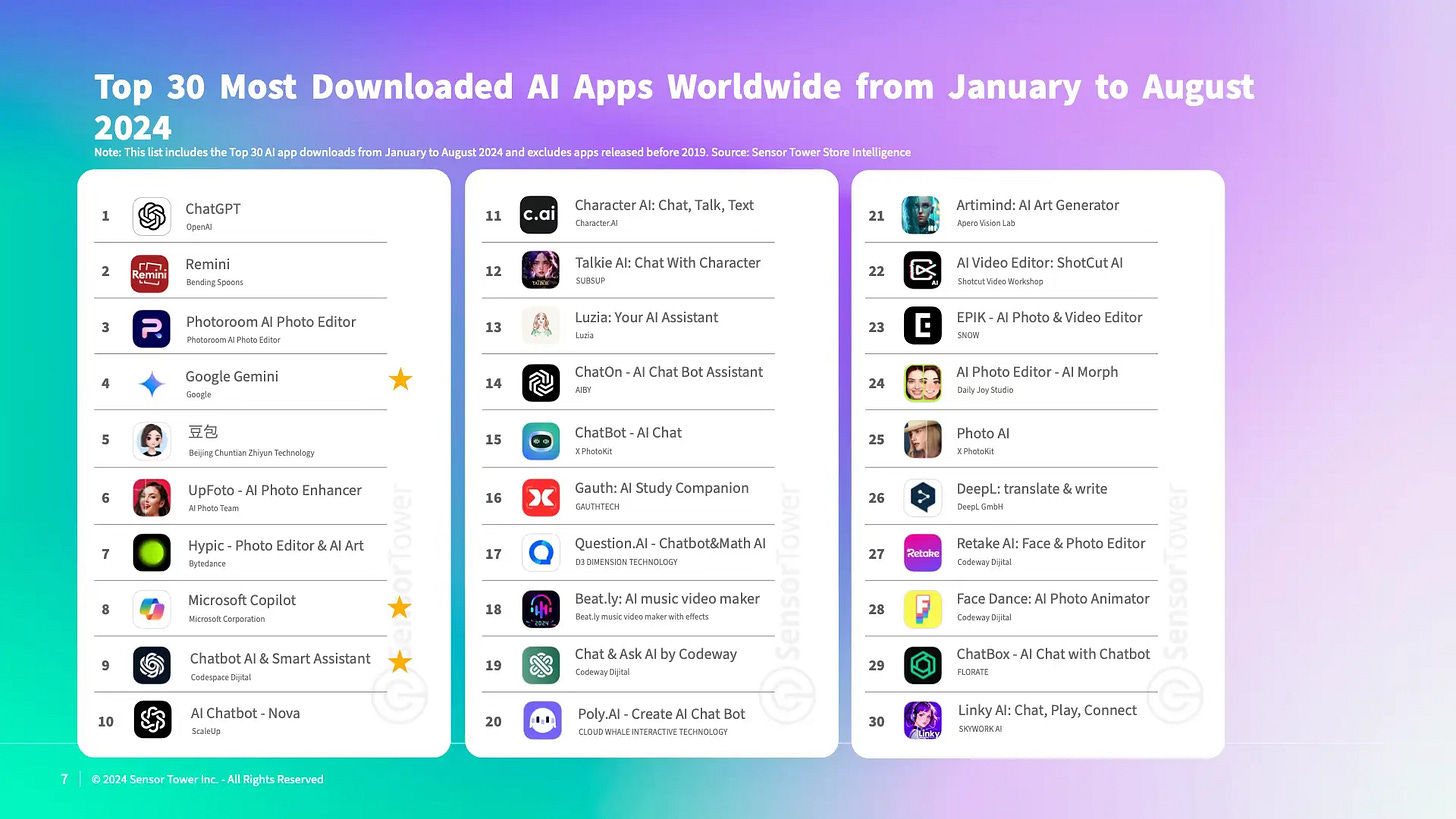30 Most Popular AI Apps Globally: Download Rankings from January to August 2024
The chart shows the "Top 30 Most Downloaded AI Apps Worldwide from January to August 2024," based on Sensor Tower data.
Key takeaways from the list:
Apps like ChatGPT (#1), Google Gemini (#4), and Character AI (#11) confirm the widespread appeal of GenAIs across various applications, including text, art, and chat modalities. Similarly, AI-driven image and video editing tools like Remini (#2), PhotoRoom (#3), and UpFoto (#6) highlight the growing demand for innovative content creation solutions.
Productivity tools like Microsoft Copilot (#8) and DeepL (#26) highlight demand in professional-enterprise and academic domains, while creative apps such as Hypic, Artimind, and EPIK showcase the market for AI-driven creative tools. Chat-focused apps, including AI Chatbot Nova (#10) and ChatOn (#14), underline growing interest in personalized AI interactions.
Regional Influence: Apps like 豆瓣 (#5) and others with non-English names indicate strong adoption in specific markets like China or broader Asia.
AI for Learning and Entertainment: AI Study Companions (e.g., Gauthi at #16) and music/video apps (e.g., Beat.ly at #18) show diverse AI apps beyond traditional workflows, catering to younger audiences or entertainment-focused users.
Emerging Players vs. Giants: Tech giants like Google and Microsoft coexist with niche developers like Codeway Digital, which has multiple entries (Chat & Ask AI, Retake AI, Face Dance AI). This demonstrates a competitive yet open ecosystem.
Further Analysis
From January to August 2024, the AI app ecosystem has shown signs of maturity, shifting from general utility to specialized use cases, with generative AI dominating thanks to advancements in LLMs and diffusion models. Users are drawn to apps that enhance creativity or productivity, fueled by intuitive designs and localized offerings, but the crowded market highlights the need for differentiation through unique features and seamless integration. This list underscores the universal appeal of AI across productivity, creativity, learning, and entertainment, with future growth hinging on personalization, cross-platform compatibility, and the emergence of vertical, tailored apps.


